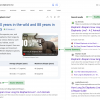A passphrase is a more secure alternative to a password, as it is a combination of words, numbers, and symbols rather than a string of random characters. Passphrases are typically longer and easier to remember since they can be a series of words or a meaningful phrase.
Forgetting a password is a common fear, as highlighted by a study that found “123456” to be the most common password across 35 countries and easily crackable. However, compromising account security out of fear of forgetting a password is not necessary.
In this article, we provide examples of passphrases and discuss different types and best practices for using them for personal or business-related accounts. Passphrases are a combination of phrases used to authenticate access to online accounts, computer systems, or other digital resources. They are usually longer than traditional passwords and consist of easy-to-remember words that are difficult for attackers to decipher. Think of a passphrase as a short sentence of four words or more with a minimum of 15 characters.
Passphrases can be easier to remember and more resistant to hacking, making them ideal for protecting essential data or accounts. We’ve provided some examples of passphrases, but it’s important to choose a phrase that is meaningful to you and avoid using these examples for personal accounts.
There are different types of passphrases, including mnemonic passphrases (words joined together to form a memorable sentence), keyboard pattern passphrases (words that follow a keyboard pattern), random passphrases (a phrase formed by choosing random words), and image-based passphrases (drawing inspiration from images).
While passphrases have their advantages, such as being easier to remember and more challenging to guess, there are also some considerations. Some systems are designed for passwords rather than passphrases, and password creation rules still apply, such as using a combination of numbers, symbols, and uppercase and lowercase letters. Additionally, remembering unique passphrases for multiple accounts can be a challenge.
Both passphrases and passwords can be secure if managed properly. The security of a passphrase or password depends on its uniqueness and complexity. Best practices for using a passphrase include using a unique passphrase for each account, using long passphrases (at least 15 characters), keeping passphrases private, and making them memorable but not too simple or reused across platforms.
Using passphrases can be an effective way to enhance account security, as long as they are not too simple and are not reused across different platforms.






